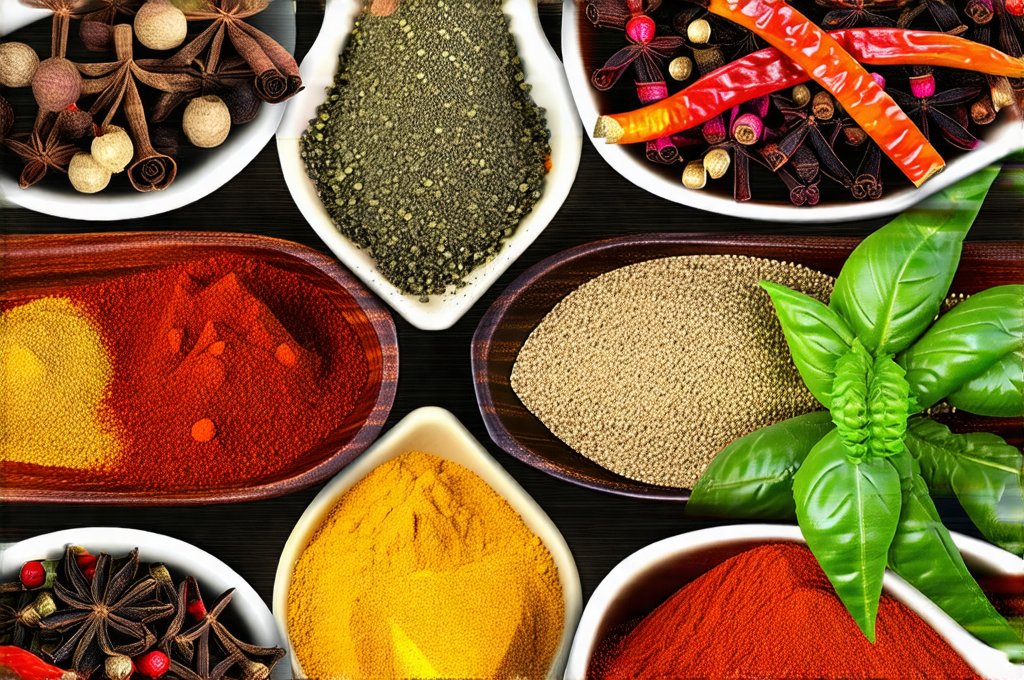Bloating is an incredibly common digestive complaint, affecting millions globally. It’s often described as a feeling of fullness, tightness, and sometimes even pain in the abdomen. While many factors can contribute to bloating – from dietary choices and eating habits to underlying medical conditions – the role that spices play is surprisingly complex and frequently misunderstood. Spices aren’t simply villains or saviors when it comes to digestive comfort; their impact varies dramatically based on individual sensitivities, the specific spice itself, how it’s used in cooking, and even the overall dietary context. Understanding this nuance is crucial for anyone looking to manage bloating through diet.
The perception of spices as either helpful or harmful often stems from anecdotal evidence and generalized advice. Some sources champion spices like ginger and fennel seed as bloating relievers, while others caution against spices known to be pro-inflammatory in certain individuals, such as chili powder or black pepper. However, the digestive system is incredibly individualistic; what triggers bloating for one person might have no effect on another. Furthermore, focusing solely on spices overlooks the broader picture of gut health and dietary patterns. This article aims to explore the complex relationship between spices and bloating, providing a balanced perspective based on current understanding and highlighting areas where more research is needed.
The Spice Rack: Potential Bloating Triggers
Many spices contain compounds that can either directly stimulate or exacerbate digestive processes, potentially leading to gas production and bloating in susceptible individuals. It’s important to understand that this isn’t necessarily a sign of spice intolerance, but rather a result of how these compounds interact with the gut microbiome and individual digestive capabilities.
- Capsaicin, found abundantly in chili peppers and spicy sauces, is known to stimulate heat receptors in the gastrointestinal tract. While some people experience no issues, others find it speeds up digestion which can lead to cramping or diarrhea if food moves through too quickly – potentially contributing to bloating as undigested particles ferment in the colon.
- Similarly, piperine, the active compound in black pepper, can stimulate digestive enzymes and increase gut motility. Again, this isn’t inherently bad, but for individuals with sensitive guts or conditions like Irritable Bowel Syndrome (IBS), it might exacerbate symptoms.
- Certain spices are also high in FODMAPs – Fermentable Oligosaccharides, Disaccharides, Monosaccharides, And Polyols. These carbohydrates aren’t well absorbed by the small intestine and instead ferment in the large intestine, producing gas as a byproduct. While not traditionally thought of as bloating triggers, they are increasingly recognized as potential culprits for many people. Onion powder and garlic powder, frequently used spice blends, can contribute significantly to FODMAP intake.
The key takeaway here isn’t to eliminate these spices entirely but to pay attention to your body’s response and adjust accordingly. Keeping a food diary that specifically tracks spice usage alongside bloating symptoms is a valuable tool for identifying personal triggers. It’s also crucial to consider how spices are combined with other foods; pairing a potentially irritating spice with fiber-rich vegetables, for example, might worsen bloating compared to consuming it with a simpler meal. Understanding if can dairy products trigger symptoms is also important when considering dietary factors.
Spices as Digestive Allies: Promoting Comfort and Reducing Bloat
Despite the potential for some spices to trigger issues, many others possess properties that can actually aid digestion and alleviate bloating symptoms. These spices often work by reducing inflammation, calming the digestive system, or directly promoting healthy gut motility.
Ginger is perhaps the most well-known example. It contains gingerols and shogaols, compounds with potent anti-inflammatory effects and demonstrated ability to accelerate gastric emptying – meaning food moves from the stomach into the small intestine more quickly. This can reduce feelings of fullness and lessen the time available for fermentation in the colon. Fennel seeds are another excellent option; they contain anethole, which has carminative properties (meaning it helps expel gas) and relaxes intestinal muscles, reducing spasms that contribute to bloating. Turmeric, with its active compound curcumin, is also gaining recognition as a digestive aid due to its anti-inflammatory capabilities and potential role in modulating the gut microbiome. Do spices always trigger reflux or can they help?
Beyond these popular choices, spices like cardamom, coriander, and cumin have traditionally been used in Ayurvedic and traditional Chinese medicine to support digestion. Their mechanisms of action are still being investigated, but they appear to work by promoting enzyme production, reducing inflammation, and improving overall gut function. The inclusion of these spices isn’t about eliminating bloating triggers so much as proactively supporting a healthier digestive process.
Understanding the Role of Gut Microbiome
The intricate connection between our diet, gut microbiome, and digestive health is becoming increasingly apparent. Spices can significantly impact the composition and function of this microbial ecosystem. Some spices contain compounds that act as prebiotics, essentially feeding beneficial bacteria in the gut. This encourages the growth of these helpful microbes, which contribute to improved digestion, reduced inflammation, and overall gut health.
- For example, cinnamon contains polyphenols that have been shown to promote the growth of Bifidobacteria – a type of probiotic known for its positive effects on digestive function.
- Conversely, other spices might inadvertently feed less desirable bacteria, potentially contributing to gas production and bloating. This highlights the importance of individualized spice selection based on your specific gut microbiome profile (though testing is often required to determine this).
The goal isn’t necessarily to eradicate all “bad” bacteria but rather to foster a diverse and balanced microbial community where beneficial strains thrive. A healthy gut microbiome can better tolerate FODMAPs and other potentially bloating compounds, reducing the likelihood of digestive discomfort. Incorporating spices strategically into your diet – focusing on those with prebiotic properties and avoiding those that exacerbate symptoms – is a powerful way to support gut health and minimize bloating. Can adding certain spices actually improve digestion?
Spice Preparation & Usage Matters
The way you prepare and use spices can also influence their impact on bloating. Whole spices generally cause less irritation than ground spices because they are more slowly absorbed, allowing the body time to process them effectively. Grinding spices releases their volatile oils and compounds, making them more potent but also potentially more irritating for sensitive individuals.
- Using smaller amounts of spice is often better tolerated.
- Cooking spices thoroughly can sometimes reduce their irritancy by altering their chemical composition. However, excessive heat can also destroy beneficial compounds.
- Combining spices with easily digestible foods (like cooked vegetables) rather than high-fat or processed foods can also minimize bloating.
Furthermore, the method of preparation is important. Adding spices early in the cooking process allows more time for flavors to meld and potentially reduces their intensity. Using fresh herbs and spices whenever possible maximizes their nutritional benefits and minimizes potential additives found in pre-ground options. Finally, mindful consumption – paying attention to portion sizes and how your body responds – is paramount. How the smell of food can sometimes trigger acid response should also be considered.
Identifying Personal Sensitivities & Seeking Support
Ultimately, the best way to determine which spices trigger or relieve bloating is to listen to your body and experiment carefully. Keeping a detailed food diary that includes spice usage, meal composition, and symptom tracking can provide valuable insights. Pay attention not only to immediate symptoms but also to delayed reactions – sometimes bloating doesn’t appear until hours after consuming a particular spice.
- Start by eliminating potential trigger spices for a period of time (an elimination diet) and then reintroducing them one at a time to assess your tolerance.
- Consider consulting with a registered dietitian or healthcare professional specializing in gut health. They can provide personalized recommendations based on your individual needs and medical history. Can GERD trigger migraines or headaches?
- Remember that bloating is often multifactorial, so addressing other contributing factors like stress, hydration, and overall dietary patterns is also essential.
It’s important to avoid self-diagnosing or relying solely on generalized advice. While spices can play a significant role in managing bloating, they are just one piece of the puzzle. A holistic approach that addresses all aspects of digestive health – diet, lifestyle, and potentially underlying medical conditions – is crucial for long-term relief. How reflux can cause persistent ear pain or fullness may also be a contributing factor.


















